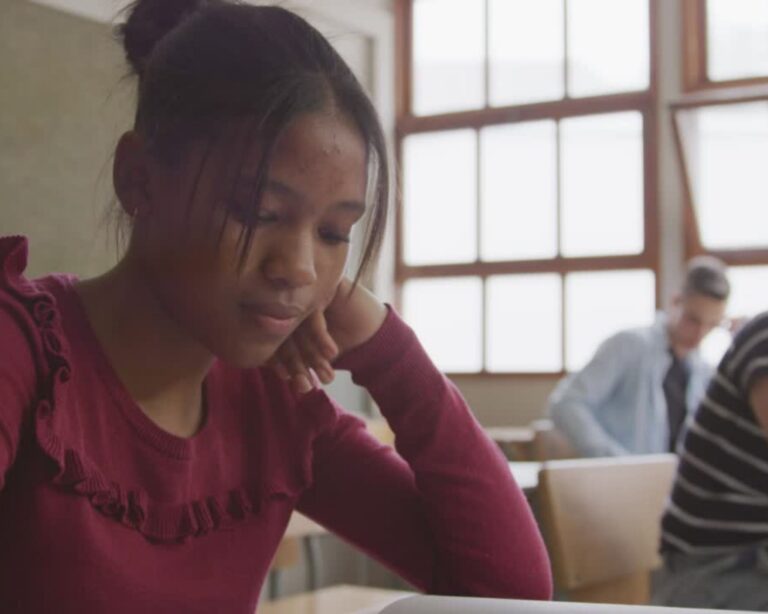
Peer pressure is something most young people experience at some point, whether in school, in the neighborhood, or online. As teenagers in Ghana, we face various pressures to fit in with our friends or follow trends, even when we know it may not be right for us. Understanding what peer pressure is and how to handle it is important for making positive choices that help us grow and succeed.
What Is Peer Pressure?
Peer pressure is the influence that friends or people of the same age group can have on one another. Sometimes, this influence is positive, encouraging us to do better in school, participate in sports, or volunteer. However, peer pressure is often negative, pushing us to make choices we know aren’t right, such as skipping classes, cheating, or experimenting with unhealthy habits. Peer pressure can happen directly, with someone asking you to do something, or indirectly, when you feel the need to conform because “everyone else is doing it.”
Why Do We Feel Peer Pressure?
The teenage years are a time of self-discovery, and during this period, we are more aware of how others see us. We naturally want to fit in, make friends, and avoid feeling isolated. Sometimes, this desire to belong makes us agree to things we are uncomfortable with. Fear of rejection, a desire for acceptance, and the need to impress friends can all make us vulnerable to peer pressure. Social media also adds to this, as we constantly see what our peers are doing and feel pressured to keep up.
Types of Peer Pressure
Peer pressure can take different forms, including:
- Direct Peer Pressure: This happens when friends directly urge you to try something, such as inviting you to a party or asking you to skip school.
- Indirect Peer Pressure: Here, no one tells you directly to do something, but you feel pressure based on what others are doing. For example, if most of your friends are wearing a particular brand, you might feel compelled to get it too.
- Positive Peer Pressure: Not all peer pressure is bad! Positive peer pressure encourages good behavior. If your friends study hard and encourage you to join them, they are positively influencing you.
- Negative Peer Pressure: This involves urging you to do things that go against your values or that could have negative consequences, like engaging in risky behavior or bullying others.
How to Handle Peer Pressure
Handling peer pressure can be challenging, but with the right mindset and strategies, you can make choices that are best for you. Here are some ways to deal with it:
1. Know Your Values
Having a clear understanding of your own values and goals is the first step to resisting peer pressure. Think about what is important to you, such as academic success, respect for others, and staying true to your family’s teachings. When you know what you stand for, you are less likely to be swayed by others’ opinions.
2. Learn to Say “No” Confidently
Saying “no” is not always easy, especially when we worry about losing friends. However, saying “no” assertively and confidently can help you stand your ground. Practice responses like “I’m not interested,” or “That’s not for me,” in a friendly but firm tone. Good friends will respect your decisions, even if they don’t agree with them.
3. Surround Yourself with Positive Influences
Choosing friends who share similar values can help reduce the amount of negative peer pressure you experience. Positive friends will encourage you to make good decisions and support your personal growth. Spend time with people who respect you and won’t pressure you to do things you’re uncomfortable with.
4. Use Delay Tactics
When you feel pressured, it can help to delay your decision. Tell your friends, “I’ll think about it,” or “I need some time to decide.” This gives you a chance to consider the consequences and avoid making impulsive choices. Sometimes, stepping away from the situation can help you see things more clearly.
5. Talk to a Trusted Adult or Mentor
If you’re struggling with peer pressure, talk to someone you trust, like a teacher, counselor, or family member. They can offer advice, share their experiences, and help you find ways to resist negative influences. Knowing you have someone to talk to can boost your confidence and remind you that you’re not alone.
6. Focus on Your Long-Term Goals
Keeping your long-term goals in mind can help you avoid distractions. If you know that certain choices will interfere with your dreams, it becomes easier to resist. For example, if your goal is to perform well academically and get into a good university, you’ll likely avoid behaviors that might hinder your progress, like skipping classes or neglecting your studies.
7. Practice Self-Respect and Self-Care
When you respect yourself and take care of your well-being, you become more resilient to external pressures. Self-care includes taking time to relax, staying active, eating well, and staying true to yourself. The more confident and self-assured you are, the less likely you are to seek validation from others by making poor choices.
Conclusion
Peer pressure is a common experience for many teenagers, but learning how to handle it can make a big difference in your life. By understanding what peer pressure is, identifying the types of pressure, and practicing ways to deal with it, we can make decisions that align with our values and goals. Remember, true friends respect your choices, and the right decisions are the ones that bring you closer to becoming the best version of yourself. Don’t be afraid to stand up for what you believe in—it’s a sign of strength, not weakness.






